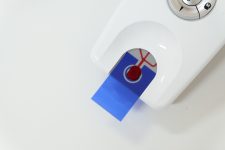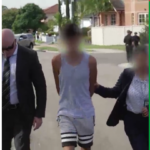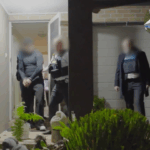Are Drug Driving Laws Fair?

NSW drivers are now facing an even greater chance of being drug tested, after police have linked crashes to drug use.
And newer machines used to detect drugs in saliva samples are even more sensitive to drugs than older technology, meaning more drivers are likely to test positive.
In August last year, a police operation in the Hunter region found that a whopping 40% of drivers had drugs in their system.
And earlier this month, it was reported that 223 out of 1234 (approx 1 in 6) south-Brisbane drivers tested positive for drugs.
These percentages are extraordinarily high – far higher than the results from random breath tests for alcohol.
In fact, drivers are five times more likely to register a positive reading when tested for drug driving than for drink driving.
Illicit drug use is claimed to have been a factor in 11% of fatal crashes between 2010 and 2013 in NSW.
In comparison, alcohol is a factor in around 20% of crashes, according to the NSW Centre for Road Safety.
Many believe that the laws on drug driving are too strict and need to change.
The law
The law currently makes it an offence to have any level of illegal drugs in your system when driving.
This is different to laws against drink driving,which generally require you to have a specific concentration of alcohol in your system before you are guilty; for example, .05 or more for low range drink driving, .08 or more for mid range drink driving or .15 or more for high range drink driving.
By contrast, police only need to show illegal drugs were in your system at the time you drove.
Under the NSW Road Transport Act, it is illegal to have drugs in your system while you are:
- Driving a vehicle;
- Occupying the driver’s seat of a vehicle and attempting to start the car; or
- Supervising a learner driver
The penalties
If it is your first ‘major traffic offence’ in 5 years, the maximum penalty is a fine of $1,000 and disqualification from driving for six months.
A ‘major traffic offence’ is one that you received a Court Attendance Notice for.
The penalties for a second or subsequent offence double, and those who repeatedly offend are at risk of being classified as ‘habitual offenders’.
A ‘habitual offender’ is someone who has committed three or more major traffic offences within five years. In that case, the RMS will add an extra five-year disqualification on top of any disqualification you receive in court.
The unfairness
The laws against drug driving send a strong message that such conduct is dangerous and can be deadly.
While this may be true in some cases, in many other instances those charged would not have been affected by drugs at all when tested.
This is particularly true for drugs like cannabis that can take days or even weeks to disappear from the system, long after any effects have worn off.
Not surprisingly, cannabis is the most common drug to be detected, followed by amphetamines, then a combination of the two.
And taking two or more drugs can increase the time it takes for the drugs to be eliminated from your body.
This has led to calls to change the law so that, like drink driving, only certain quantities of drugs should be penalised rather than any quantity at all.
One of the opposing arguments is that drivers who take drugs should be punished because they should not have been taking drugs in the first place.
But that argument completely ignores the whole basis for drug driving laws: to increase road safety and thereby reduce accidents, injuries and fatalities.
What should I do if I’m going to court
If you are charged with drug driving, your best bet is to contact an experienced, specialist traffic lawyer and get some advice about your options, the best way forward and the likely outcome.
Many law firms offer a free first appointment where you can receive information without any obligation to commit.
If you wish to hire a lawyer, they may be able to have your case dropped or thrown out of court if police failed to follow certain procedures or if you have a valid legal defence – for example, if you were prescribed morphine or codeine and it is in your system when driving, or if you made an “honest and reasonable mistake of fact”.
If you wish to plead guilty, a good lawyer will be able to prepare your case thoroughly and explain your situation to the court persuasively, giving you the highest chance of avoiding a conviction and licence disqualification – especially if the level of drugs in your system is low because you took them on an earlier day.
You will be able to avoid a conviction and keep your licence if you (or your lawyer) can convince the magistrate to give you a ‘section 10 dismissal or conditional release order’ – which means guilty but no criminal record.






